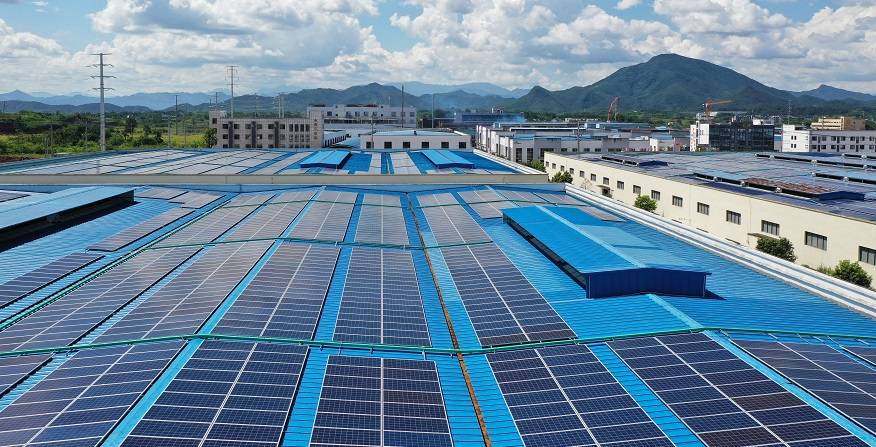
1月 . 26, 2024 17:01 リストに戻る
EMS(エネルギーマネジメントシステム)とは何ですか?
Organisations across various industries are feeling the pressure to regulate and manage their energy usage. This increased focus on Energy management systerm comes as a result of rising costs for water and electricity, as well as growing concern over the climate crisis. The need for Energy management systerm has not only become a financial concern but also a social and ecological issue.
To cope with these challenges, many organisations are now adopting an Energy management systerm System (EMS). An EMS offers numerous benefits for organisations, including lower energy bills, stronger long-term planning, increased energy security, and effective continual improvement.
So, what exactly is an EMS? According to the United Nations, an EMS is a framework that assists energy consumers, including industrial, commercial, and public sector organisations, in managing their energy use. It helps these organisations identify opportunities to adopt and improve energy-saving technologies, even those that do not require high capital investment. Implementing an EMS successfully usually requires specialised expertise and staff training.
Energy management systerm is not just about reducing costs; it also plays a crucial role in reducing the organisation's carbon footprint and protecting the natural environment. By lowering energy consumption and managing energy efficiency, organisations can reduce their reliance on external energy providers, thus decreasing the associated risks. This holistic approach to Energy management systerm considers various factors such as efficiency, performance, environment, carbon footprint, management, and continual improvement.
Implementing an EMS also has a positive impact on the environment by conserving resources and reducing energy consumption. By doing so, organisations can ultimately reduce pollution and waste while finding ways to deploy less energy or switch to more efficient energy sources.
Energy management systerm is not merely an operational concern; it has now become a strategic issue for organisations. Being competitive in today's market requires efficient resource usage, which can result in lower costs and higher profits. Additionally, increasing customer awareness of sustainability issues and stricter regulations concerning climate change and the environment are impacting organisations globally. Moreover, the finite nature of fossil fuels and the rising global demand for energy make Energy management systerm a critical strategic consideration.
クリーンな成長と温室効果ガス排出削減の推進により、ISO 50001 などの取り組みが導入されました。この取り組みは、エネルギー政策と取り組みを単一の管理システムに統合することを目的としています。英国政府のクリーン成長戦略では、炭素排出量の大幅な削減とよりきれいな空気の必要性がさらに認識されています。

市場の消費者は脱炭素化の必要性をより認識しており、サプライヤーがこの需要を認識することを期待しています。これらの期待に応えるために、組織はエネルギー消費を監視し削減するためのさまざまなテクノロジーやシステムを検討する必要があります。
Implementing an EMS offers several benefits for organisations. It provides a better understanding of actual energy usage, enabling effective leadership focus on energy flows and the setting of energy policy and objectives. Furthermore, it fosters a better focus among staff and other stakeholders on energy use and how it can be more efficiently managed. By identifying unnecessary, excessive, or inconsistent energy consumption, organisations can make smarter energy decisions. They can also examine the risks and opportunities associated with different energy sources, including renewable ones. Additionally, when making capital investment decisions, organisations can take into account energy considerations, such as investing in equipment or processes that consume less energy or have a lower carbon impact.
In conclusion, the increasing pressure to regulate energy usage has made Energy management systerm a crucial consideration for organisations. Implementing an EMS allows organisations to conserve energy, reduce waste, and operate more efficiently. It not only provides financial benefits but also addresses social and ecological concerns. By adopting an EMS, organisations can lower costs, improve long-term planning, enhance energy security, and drive continual improvement. Moreover, Energy management systerm is now a strategic issue as organisations strive to remain competitive while meeting growing customer expectations and regulatory requirements. Implementing an EMS offers a better understanding of energy usage, smarter energy decisions, and the ability to invest in equipment or processes that have a reduced energy consumption and carbon impact.
違反の場合は削除されます
参考サイト:https://www.itgovernance.eu
-
Wireless DC Charging: The Next Frontier in Contactless EV Power Delivery
ニュースAug.04,2025
-
Hybrid BMS Energy Controls: Integrating Renewable Energy Sources
ニュースAug.04,2025
-
Blockchain for Secure and Decentralized EMS Power Systems
ニュースAug.04,2025
-
AI-Driven for Smart Grids: Energy Management System (EMS)
ニュースAug.04,2025
-
Advanced Distribution Management System (ADMS) Energy
ニュースAug.04,2025
-
5G-Enhanced BMS Energy Savings: Ultra-Low Latency Control
ニュースAug.04,2025























